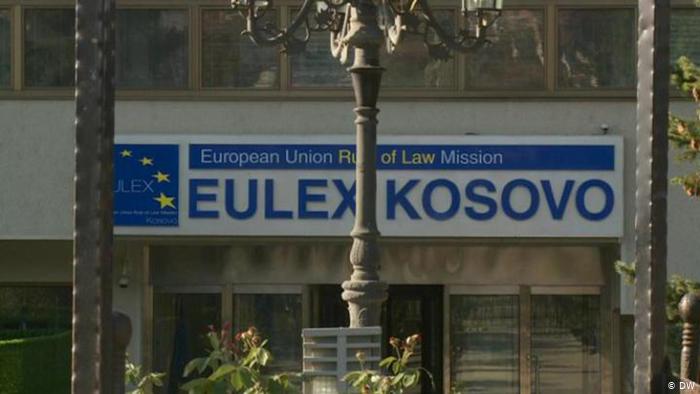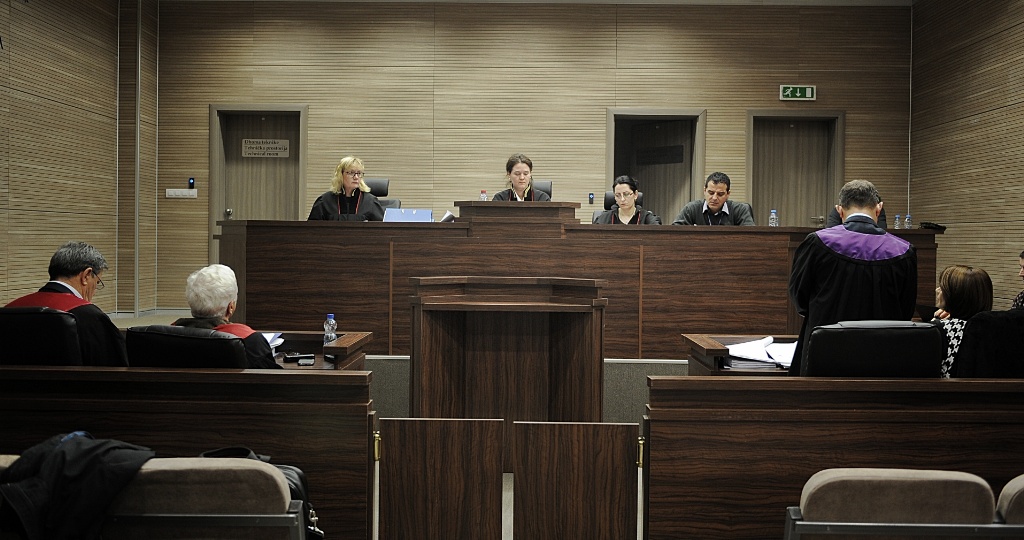Author: Renée de Geus
On 12 July 2021, former President of EULEX Judges (2014-2017), Malcolm Simmons, gave testimony to the Kosovo Assembly on serious allegations of corruption and misconduct by international judges, prosecutors and other senior staff that took place within the European Union Rule of Law Mission in Kosovo (EULEX Kosovo). Simmons claimed that during his time in office (2008-2017) he witnessed various incidents of interference in high-profile war crimes cases to secure convictions in the interest of the EU-facilitated Pristina-Belgrade normalization talks. In particular, his allegations included that trial panels had been manipulated, prosecutors and judges were pressured by senior Mission management to try certain cases despite an apparent lack of evidence, protected witnesses were threatened or offered inducements, andevidence was tampered with. Simmons assured the Kosovo Assembly that his testimony was supported by documentary and other evidence which he would be willing to disclose if the Assembly were to decide to launch a full inquiry into EULEX Kosovo and the UK Foreign Office would agree to waive Simmons’ legal obligations under the Official Secrets Act. Should such an inquiry be conducted, Simmons claimed that other former EULEX staff members would be willing to corroborate his allegations and testify to their own experiences.

In response to his testimony, EULEX Kosovo issued a statement in which it challenged Malcolm Simmons’ credibility. The press release suggested that he had deliberately spread false information out of resentment over the findings of a disciplinary board in three investigations that EULEX had initiated against him. It dismissed Simmons’ allegations as “a collection of ill-conceived and unsubstantiated conjectures, untruths and personal opinions” which are intended to discredit the work and reputation of EULEX Kosovo. If there had been any veracity to his story, the press release questioned why Simmons had continued his employment for the Mission and even applied to become President, did not officially report the alleged misconduct of EULEX staff to the appropriate EU authorities until to 2 September 2017, and failed to provide evidence to an independent investigation team to substantiate his allegations.
In reply, Simmons claimed to have informed the European Union (EU) of alleged misconduct within EULEX Kosovo on multiple occasions in the period between 2013-2016 and had emails to prove this. He confirmed that in 2017 the European External Action Service had initiated an investigation into his allegations, but had no confidence that the investigators in charge would conduct a proper investigation since these were the same individuals who had previously ruled against Simmons in the course of disciplinary proceedings initiated by EULEX and were in possession of his private emails that had been obtained during an illegal hacking of his account. Simmons repeatedly requested the EU to appoint an independent investigation team to address his allegations, but these requests went unanswered.
In his testimony, Malcolm Simmons provided the Kosovo Assembly two specific examples of high-profile war crimes cases in which interference allegedly occurred, namely Kleçka and Drenica. Simmons had acted as Presiding Judge in the retrial of the Kleçka case against Fatmir Limaj et al. He alleged that the then President of EULEX Judges had attempted to interfere by informing him that the Mission expected the defendants to be convicted and that Simmons’ job might depend on the outcome of the retrial. Simmons claimed that the evidence in Kleçka was so weak that the case should not been brought to trial and the Retrial Panel therefore acquitted the accused of all charges. In its press release, EULEX Kosovo argued that Simmons’ allegations in relation to Kleçka are refuted by the fact that Simmons did not only keep his job, but was appointed to President of EULEX Judges the following year. It further suggested that Simmons could have recused himself if he had felt the evidence was insufficient to bring the case to court. Another former EULEX judge in Kleçka contested Simmons’ allegation that the evidence had been too weak to constitute a credible prima facie case.
Malcolm Simmons also alleged that the Trial Panel in the Drenica II case had been manipulated. He claimed that a judge from the mobile unit, of which he was in charge at the time, had been assigned to this case without his knowledge and in violation of the random case allocation system in place. When Simmons subsequently requested that the appointment of this judge to the Drenica II case be revoked, he claims to have been told by the acting President of EULEX Judges that the Mission was “pleased” with the composition of the Trial Panel as it would likely “get the right result.” The requests of the Defence in the Drenica cases to hear the evidence of Judge Simmons on this issue were denied. In his testimony, Simmons pointed out that in 2018 the Constitutional Court of Kosovo considered this to be in breach of the accused’s right to a fair trial. In its press release, EULEX Kosovo responded that the Defence never raised any objections to the composition of the Trial Panel during the main trial. This is correct, as the Defence only became aware of the possible manipulation of the Trial Panel after the pronouncement of the verdict in first instance. EULEX Kosovo reminded Simmons that in 2019 a panel of the Constitutional Court composed of only Kosovo judges unanimously dismissed a renewed request for constitutional review of the composition of the Trial Panel in Drenica II. This Decision was reached following a critical Report of the European Commission on the manner in which the local judiciary had handled the Drenica cases.
The allegations of the former President of EULEX Judges do not merely affect the legacy of EULEX Kosovo, but are also relevant to the proceedings before the Kosovo Specialist Chambers (KSC). Pursuant to Article 37 of the Law on the Specialist Chambers and Specialist Prosecutor’s Office, evidence collected by EULEX Kosovo may be admissible in the proceedings before the KSC. Moreover, Rule 157(2) of the KSC’s Rules of Procedure and Evidence provides that the KSC may also take judicial notice of adjudicated facts extracted from the final judgements of EULEX Kosovo. All three war crimes cases that are currently pending before the KSC, contain charges that relate to cases previously tried by EULEX Kosovo. In particular, the Indictment filed in the case against Hashim Thaçi et al. charges the defendants inter alia for participating in the same joint criminal enterprise as the accused in the Kleçka and Drenica cases.
At this stage, an independent and impartial investigation into the allegation made by Judge Simmons, might be in the interest of all parties involved. Such an investigation could assess the reliability of the work of EULEX Kosovo and put an end to the long-standing allegations of corruption and misconduct. This may also be of influence on how the legacy of EULEX Kosovo will be appraised by history. Furthermore, if the KSC wishes to rely upon the facts and evidence of EULEX Kosovo, it must be satisfied that this material is safe to use and has been obtained in accordance with international standards. An independent investigation could assist the KSC in making this determination. Moreover, if conducted in a transparent manner, such an investigation might also serve to improve the trust of the Kosovo Albanian population in the fairness of the proceedings against former members of the KLA and increase local support for the work of the KSC. Finally, when Kosovo was asked to establish the KSC, the EU issued a statement recognizing this was “a sensitive and difficult decision” for Kosovo to make, but one that was necessary to demonstrate “it has nothing to hide in connection with the 2011 Council of Europe Report’s allegations.” Parallels can be drawn with Simmons’ call for an independent investigation into his claims. If the EU would be willing to cooperate with an external investigation into EULEX Kosovo, this would send a powerful message to the people of Kosovo demonstrating that it holds itself to the same standards it previously required of Kosovo.
Renée de Geus is editor of Maastricht Blog on Transitional Justice, PhD Researcher at Maastricht University, and Lecturer at Erasmus School of Law.
